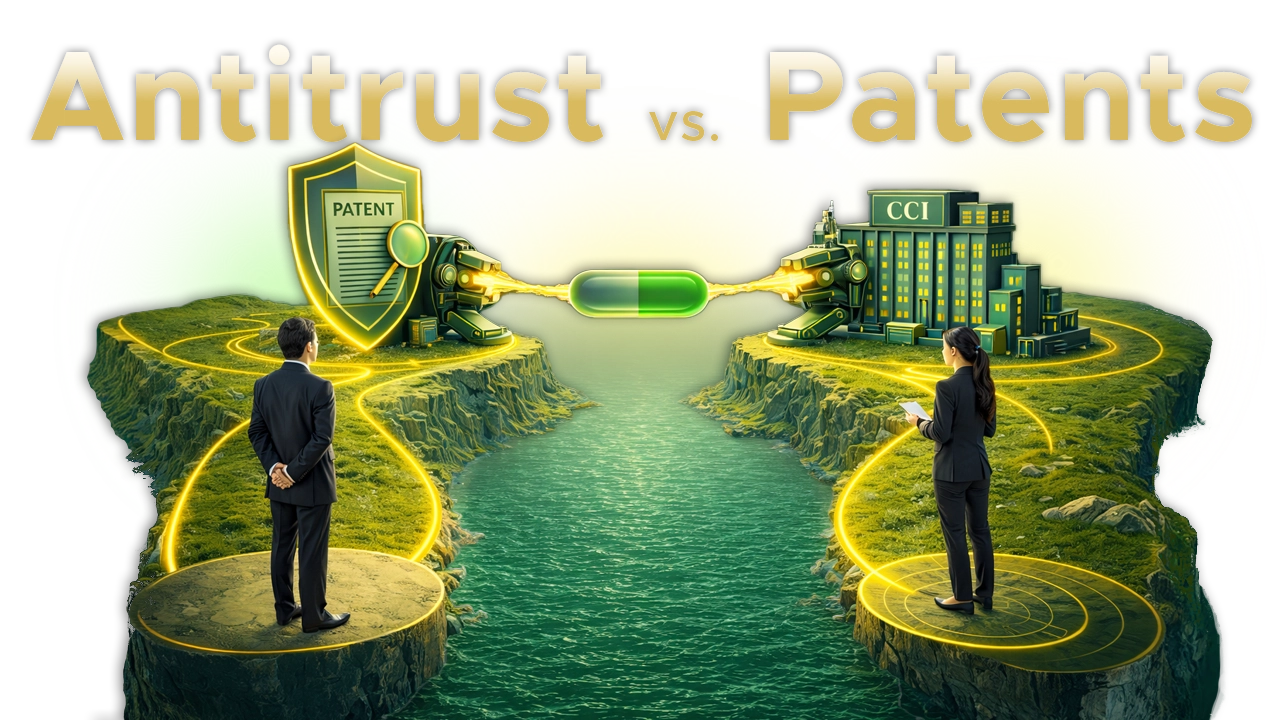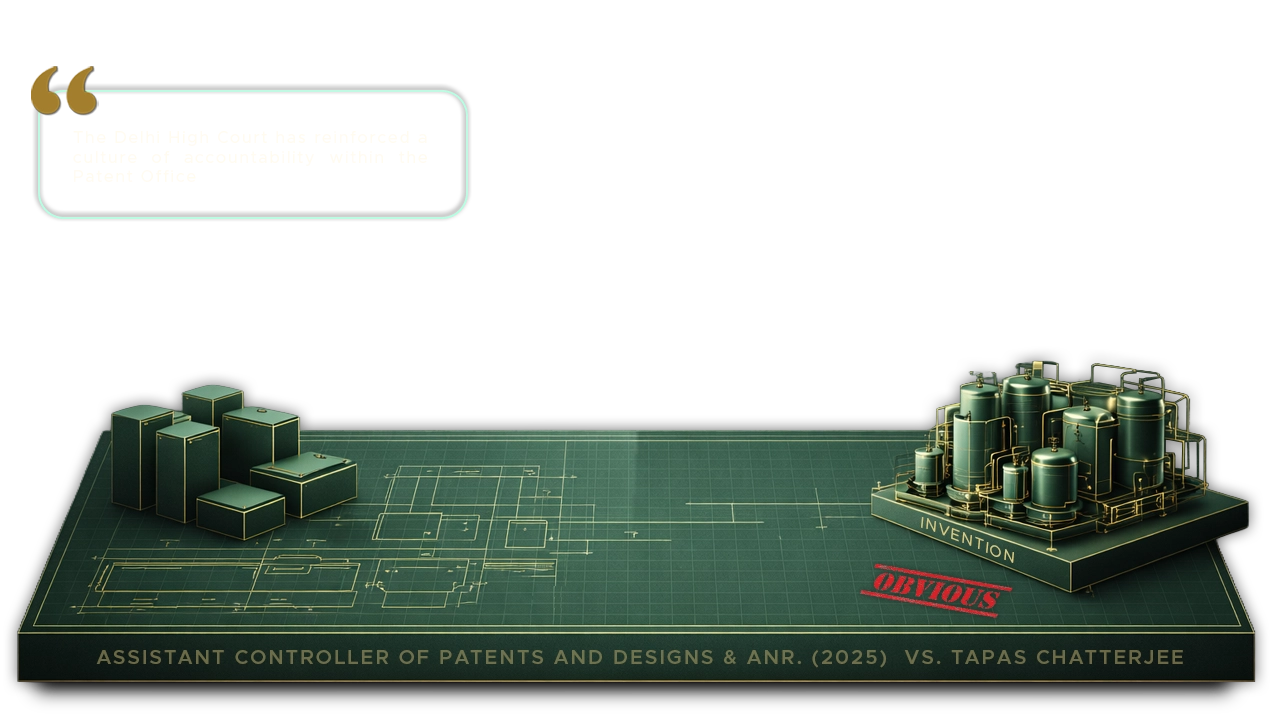Introduction
Could the financial troubles of a company force its partners to personally empty their own pockets to cover the debt? This core legal question, critical for businesses structured as a LLP1, was recently addressed by the Bombay High Court. In a significant ruling, the Court categorically stated that partners of an LLP cannot be held personally liable to satisfy an arbitral award, even as it upheld the underlying award requiring the LLP itself to pay over ₹88 lakh in unpaid dues. This decision arose from a dispute between Proteus Ventures LLP and Archilab Designs, where an arbitral tribunal had wrongly fastened joint and several liability on the LLP’s designated partners.
The Bombay High Court judgment in Proteus Ventures LLP Versus Archilab Designs2, delivered by Justice Somasekhar Sundaresan, not only clarified the shield of liability inherent in the LLP structure but also affirmed that an arbitral award should not be set aside merely because the arbitrator is not a lawyer and the reasoning lacks a “trained legal mind’s” style. The ensuing article will delve into the legal principles underpinning this judgment, exploring the distinct nature of the LLP and the scope of judicial review over arbitral awards.
Why do Partners of an LLP remain shielded from Arbitral Liability?
When a company faces financial distress, can its partners be forced to dip into their personal savings? This question strikes at the very heart of the Limited Liability Partnership (LLP) structure, a cornerstone of modern business law designed to encourage entrepreneurship by mitigating personal risk. The Bombay High Court, in considering the challenge to the Impugned Award, confronted this fundamental issue head-on: the inviolable separation of liability between an LLP and its designated partners.
The primary ground for challenging the Award was precisely this: the Arbitral Tribunal had erred by making the Designated Partners of Proteus (an LLP) jointly and severally liable for the partnership’s debts. This constituted a direct assault on the statutory shield provided to an LLP partner. An LLP, by definition, is a body corporate and a legal entity separate from its partners. Consequently, the core legal principle is that the liability of the LLP cannot be “visited upon its partners”—a core tenet the Court emphatically upheld. The Arbitral Tribunal, it was noted, had been “successfully drawn into an error” in its analysis, particularly by misapplying the group company doctrine to individual partners, thereby exceeding its jurisdiction and violating the public policy of India as reflected in the LLP Act. The Court made it clear: the vulnerability of the Impugned Award lay solely in this misguided attempt to pierce the corporate veil.
Does one fundamental error necessitate the complete annihilation of an otherwise sound arbitral award?
Fortunately, the law of arbitration provides a mechanism for surgical intervention: severability. The Court stressed that the erroneous imposition of joint and several liability on the Designated Partners was an “element that is eminently capable of being severed to save the Impugned Award.”
Citing the emphatic declaration by the Supreme Court’s Constitutional Bench in Gayatri Balasamy vs. M/s ISG Novasoft Technologies Limited3, the Court confirmed its power to partially set aside a flawed component of an arbitral award, provided that the excised part is not “inseparably intertwined” with the valid components. In this case, removing the obligation on the Designated Partners to personally pay had “no bearing or impact on the other portions of the Impugned Award,” thus allowing the core finding of the LLP’s liability for unpaid dues to stand firm. The result: the Award was saved, but the partners’ liability shield remained intact, reinforcing the statutory distinction of the LLP.
Does the Arbitrator’s Competence hinge on a Law Degree?
Beyond the issue of partner liability, the petitioner sought to overturn the Award on grounds that extended to the very legitimacy of the arbitration process itself. The petitioner claimed the Tribunal was biased and lacked “legal knowledge.” How did the High Court view these sweeping allegations? With a firm hand, it rejected the notion that an arbitrator must possess a “trained legal mind,” thereby championing the role of domain expertise in arbitration.
The suspicion of bias, based on trivialities was dismissed as untenable. The Court strongly reiterated the principle from Associate Builders vs. Delhi Development Authority4: when reviewing an award made by a non-lawyer arbitrator, particularly one with domain expertise (in this case, in architecture, relevant to the dispute), the court must be exceedingly cautious. An award based on reasoning that “does not measure up in quality to a trained legal mind would not be held to be invalid on this score.” The arbitrator, having been institutionally designated and possessing the relevant technical knowledge, was deemed the “ultimate master of the quantity and quality of evidence,” and the Award was found to be a “just, fair, reasonable and consistent” outcome.
Can an Arbitrator award damages for “Mental Agony” in a Commercial Contract Dispute?
Finally, the Court addressed the Award of ₹24 lakhs for hardship and mental agony. Can an arbitrator award damages for “mental agony” in a commercial contract dispute? Absolutely. Citing the Supreme Court’s clear position in R. Padmanabhan vs. R. Natesan5, the Court held that such an award is permissible, especially where a party’s conduct is “highly indifferent, lethargic and wrongfully retained…belonging to another person.” This component, too, withstood scrutiny, affirming the Tribunal’s power to assess damages based on the conduct and impact of the dispute. The ultimate conclusion? The Impugned Award was upheld, with the sole exception being the removal of the personal liability of the Designated Partners, thus underscoring the vital legal barrier protecting the Limited Liability Partnership.
Conclusion
The Bombay High Court’s ruling on the non-liability of partners in a Limited Liability Partnership (LLP) under an arbitral award sends a clear and resounding message across the commercial landscape: the statutory protection afforded by the LLP structure is not a mere formality but an unyielding legal shield. By excising the portion of the award that imposed joint and several liability on the Designated Partners, the Court decisively reaffirmed the principle that an LLP is a distinct legal entity, separating the partners’ personal assets from the partnership’s debts. This judgment powerfully validates the fundamental promise of the LLP Act—to foster entrepreneurial ventures by guaranteeing that, absent specific fraud, the failure of the business will not lead to the financial ruin of the individuals who manage it. The integrity of the corporate veil in arbitration, as in civil law, has been unequivocally preserved.
Looking forward, this decision will have significant ramifications, primarily by bolstering confidence in the LLP as a robust business vehicle in India. It minimizes the legal risk for individuals transitioning from partnership firms to LLPs or founding new ventures, ensuring that the personal liability arising from commercial disputes, including those resolved through arbitration, remains confined to the entity itself. However, the ruling also subtly sets the stage for future legal questions. While the Court firmly rejected the arbitrary application of the group company doctrine to individual partners, it does not entirely close the door on situations where the veil might be pierced. The commercial world will now watch closely: Under what exceptional circumstances—short of outright fraud—might an arbitral tribunal or a Section 34 Court find grounds to hold an LLP partner personally accountable? Does extreme negligence or deliberate misrepresentation by a partner, for instance, constitute sufficient reason to invoke liability, even within the insulated structure of an LLP?
Ultimately, the judgment serves as a vital judicial clarification, reinforcing the established law that an arbitral tribunal, being a creature of contract, must operate within the statutory frameworks governing business entities. Any attempt to disregard the limited liability granted by law is an error of jurisdiction, making the award vulnerable to being set aside on grounds of violating public policy. The takeaway for businesses and legal practitioners is clear: the liability of the LLP is distinct from that of its partners, and this distinction is a non-negotiable legal tenet. The ongoing question for jurisprudence, therefore, remains: How precisely will courts define the boundaries of “severability” to correct such errors in future awards, ensuring justice is done to the claimant without unduly penalizing the innocent partners of an LLP?
Citations
- Limited Liability Partnership
- Proteus Ventures Llp Versus Archilab Designs,Commercial Arbitration Petition (L) No. 28606 Of 2024
- Gayatri Balasamy vs. M/s ISG Novasoft Technologies Limited S.L.P.(C) Nos.15336-15337 of 2021
- Associate Builders Vs. Delhi Development Authority Civil Appeal No. 10531 Of 2014
- R. Padmanabhan vs. R. Natesan Arbitration O.P.No.3 of 2012
Expositor(s): Adv. Anuja Pandit






